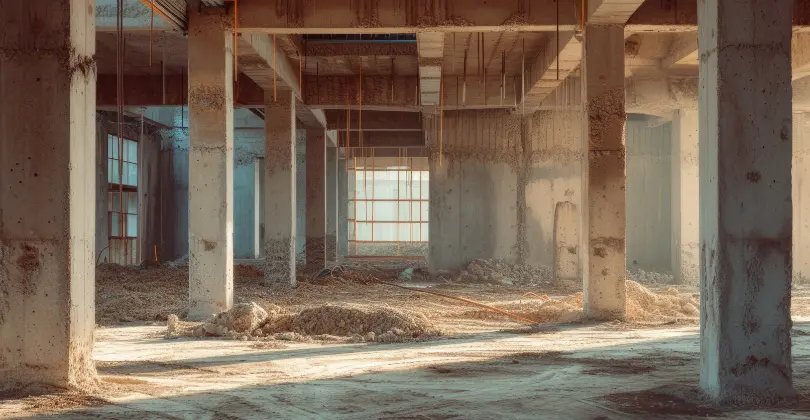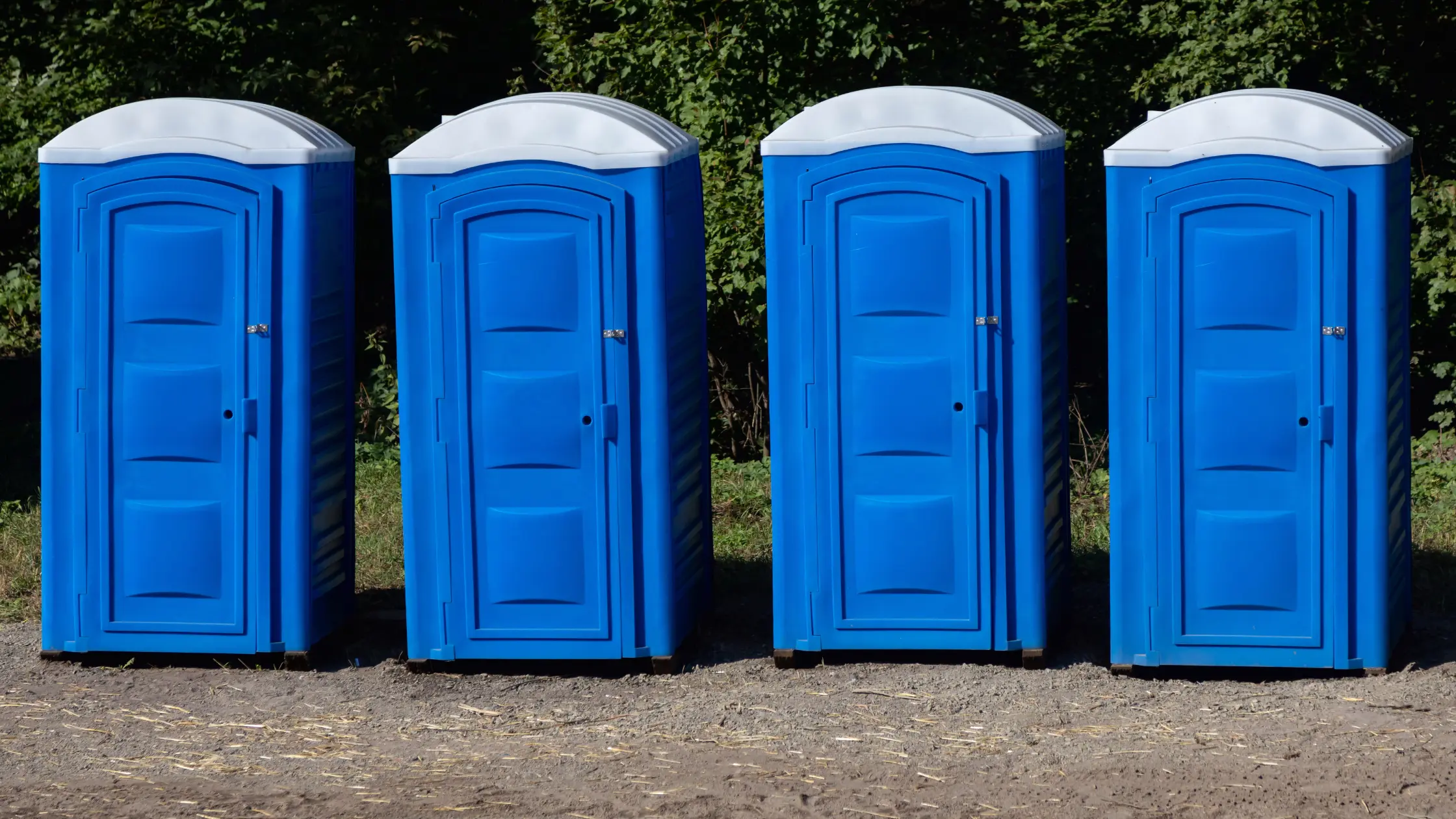FRP Portable Toilet for Construction Workers: Improving Site Hygiene
FRP portable toilets are becoming essential for maintaining cleanliness and safety at construction sites. In India, around 50 million construction workers put in long hours, yet many of them lack proper access to hygiene facilities.
A 2022 study by the National Sample Survey Office (NSSO) found that nearly 70% of construction sites do not have adequate toilets. As a result, workers often go out in the open, which compromises their health, hygiene, and dignity.
FRP portable toilets are making a significant impact on these issues. They are strong, durable, and can withstand harsh weather conditions. Moreover, they do not rust or break and can be moved and set up quickly.
Let’s explore further why FRP portable toilets are a smart option for construction companies throughout India.
Hygiene Challenges Faced by Construction Workers

Construction workers in India frequently work in areas without adequate toilet facilities. This forces them to go to open spaces like fields or behind bushes, which pollutes the worksite and creates unsafe conditions. A study conducted in Bangalore revealed that none of the 12 construction workers interviewed had access to a toilet at their workplace. This situation is both unhealthy and illegal.
The Building and Other Construction Workers Act of 1996 states that every construction site must provide enough toilets and urinals. Unfortunately, many sites do not follow this rule.
Without toilets, human waste is left exposed, which attracts flies and can contaminate drinking water, leading to illnesses. Diseases such as diarrhoea, typhoid, cholera, and hepatitis A can spread easily in these conditions.
Women workers face additional challenges. Without safe toilets, they lose their privacy and face safety risks. Poor sanitation impacts morale negatively and makes it harder for them to stay healthy and focused on the job.
A study of 387 construction workers highlighted serious health issues:
- 16.1% had skin problems
- 14.7% experienced respiratory issues
- 4.7% had vision problems
- Many suffered from jaundice and malaria.
Without toilets nearby, workers also waste valuable time walking long distances to find a place to go. Some may even skip bathroom breaks, which harms their health and productivity.
This shows the importance of FRP portable toilets. A clean and easy-to-use FRP toilet on-site can prevent illnesses, save time, and help keep workers safe and healthy.
Why FRP Portable Toilets are the Best Solution
India’s weather varies significantly, from scorching summers to heavy monsoons. Toilets used on construction sites must be strong, weather-resistant, and easy to move. This is why FRP portable toilets become the best choice.
FRP, or Fiberglass Reinforced Plastic, is a special material that is both strong and lightweight. It does not rust like metal or bend like some plastic. Also, it can handle heat, rain, and moisture without damage.
Another great advantage of FRP is that it requires minimal maintenance. Once installed, it can last for years without repairs. The smooth and non-porous surface of FRP does not soak up water or dirt. which helps to prevent the growth of germs and bacteria.
The FRP movable toilet cabin offers a reliable and safe solution for workers in challenging environments.
Key Features of FRP Portable Toilets
FRP portable toilets are made with many smart features that make them better than regular toilets on construction sites. These features improve comfort, hygiene, and safety, especially in India’s tough weather conditions.
- Good Ventilation- These toilets have vents or small fans that help eliminate bad odours and hot air. This keeps the interior cooler and more pleasant during hot summer days.
- Roof and Walls- The roofs and walls are designed to withstand intense sunlight and heavy rain. Many FRP units have sloped and insulated roofs that prevent rainwater from entering and reduce heat inside. Hence, they are the perfect construction portable toilets for both dry and rainy seasons.
- Drainage Systems- These toilets have proper drainage systems. Wastewater flows directly into tanks or drains without pooling on the floor. Some units even have biodigester tanks or septic systems for safe waste management during the monsoon season.
- Easy Cleaning- The smooth interior surface of FRP toilets does not absorb dirt or water, which makes them easy to clean with just water and disinfectant. The material does not get damaged with cleaning chemicals, and there are no cracks where germs can hide.
- Safety and User Comfort- These toilets have anti-slip floors, lockable doors, and strong walls that do not fall apart easily. They can even be made to meet functional needs, like wider doors or handrails for people with disabilities.
- Different Toilet Styles- FRP portable toilets can be built with Indian-style squat pans or Western-style seats. Urinals, hand-wash sinks, taps, and soap dispensers can also be added. This helps make the toilets more comfortable for different types of users.
- Built-in Water Tanks- Many units even have built-in water tanks for flushing and handwashing, so workers can stay clean after using the toilet. For example, Creative Fibrotech’s mobile toilet van includes a 1000-litre water tank and a 1500-litre bio-digester tank.
How They Improve Hygiene
FRP portable toilets help make construction sites much cleaner and healthier. They stop the spread of diseases, keep the environment clean, and help workers feel more comfortable.
- Mitigates Open Defecation- When workers have access to proper toilets, they do not have to go outside in fields or behind buildings. This reduces the chances of people getting sick from diseases, like diarrhoea, typhoid, cholera, or hepatitis.
- Handwashing Stations- These stations in FRP mobile toilet units have soap or sanitiser. It enables workers to wash their hands right after using the toilet. This small step helps prevent many infections and keeps everyone on site healthier.
- Protect the Environment- Waste is stored in closed tanks or sent into drainage systems. Therefore, it does not get into the ground or water nearby. This keeps both the site and nearby areas safe from contamination.
Things to Consider Before Selecting the Right Portable FRP Toilet for Your Site
Before renting or buying FRP portable toilets, site managers should evaluate key factors:
- Crew Size Regulations- Many states require 1 toilet per 20-50 workers. Therefore, align the number of units to your workforce so you meet legal requirements.
- Project Duration- For short jobs (days), a basic movable toilet cabin is sufficient. Long-term projects (weeks/months) might invest in more durable or serviceable units and schedule regular cleaning.
- Climate and Environment- In very hot areas, prioritise models with better ventilation and insulation. In high-rainfall regions, ensure the units have leak-proof seals and consider elevated platforms to avoid flooding.
- Water and Waste Infrastructure- Decide if you need flush toilets or dry, bio-digester systems. Check if the site can supply water and if emptying tanks is feasible on schedule.
- Access and Transport- Ensure delivery trucks can reach the placement area. An FRP portable toilet for a construction site is lighter than metal or concrete, but the site layout (road width or terrain) still matters for installation.
- Swachh Bharat Alignment- Choose toilets that support the mission’s goals. For example, installing handwash stations and ensuring anti-odour chemicals or bio-additives are used. This demonstrates a commitment to India’s national sanitation standards.
Conclusion: Raising Hygiene Standards on Construction Sites
Good sanitation is a foundation of worker welfare and project success. Portable FRP toilets transform a common construction headache into a solved problem. FRP units that are durable, weatherproof, and easy to maintain can eliminate open defecation on site, cut diseases, and even boost productivity.
FRP mobile toilet units help fulfil legal mandates (like the BOCW Act) and support national sanitation goals. When sites adopt clean, on-site FRP toilets, they not only protect workers’ health but also project an image of professionalism and care.
As the construction industry continues to grow and evolve, investing in high-quality sanitation solutions like FRP portable toilets represents both a moral imperative and a sound business decision. Creative Fibrotech is leading this transformation by providing reliable, innovative products that meet the specific construction industry needs.

